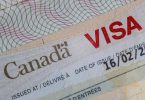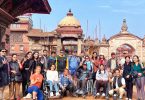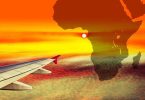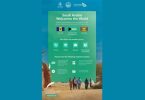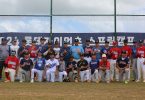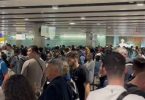PLAYA DEL COCO, Costa Rica — I felt safe enough strolling the beach alone past midnight in this resort town — I was right in front of my hotel, there was a police station two blocks to the right and there were several people hanging out on the beach.
Of course, those were the people who were about to mug me.
I turned to the left, where a little, gray footbridge crossed a marshy area between two roads. That was my first mistake: Don’t go where the police can’t drive.
Four shirtless, barefoot men came up behind me silent as wraiths, grabbed my body and slammed me face down onto the hard, splintery boards of the bridge.
I’m a fit 45-year-old, a former boxer and wrestler, and (when four men are not on top of me) a decent runner. I’ve traveled alone in places a lot more dangerous than Costa Rica, including post-genocide Rwanda and rebel-held Congo. I’ve sometimes thought, “I pity the fool who tries to mug me.” But on this one night, when I let my guard down, I was the fool.
I tried to fight, but I couldn’t — I was pinned, my arms and legs crushed under the weight of four tough guys. All I could do was scream.
“HELP! SOCORRO! AYUDAME! HELLLLP!”
Nobody heard me, though my hotel was only 50 paces away, with a guard in the front office and the five guys traveling with me fast asleep. (My excuse? Insomnia.)
My clearest memory of the attack was looking up and seeing a rangy man raising his heel and then stomping it into my nose. As I learned in my boxing days, a blow to the face doesn’t hurt all that much in the heat of battle, but it does rattle your brain a bit.
“HELLLLLP!” The stomping didn’t silence me, but now I felt a hand clamp over my mouth, a disturbingly intimate touch. And as it also covered most of my nose, I felt the panic of asphyxiation. I went silent, thrashing as I struggled to breathe.
I heard a muted voice: “Es todo.” That’s all.
And then a strange thing happened: They let me go and quietly slipped away. This was oddly surprising, as if I expected them to go on stomping and smothering me all night.
I rolled under the rails of the bridge and staggered back to the hotel. I noticed that the left pocket of my REI shorts had been ripped open for half a pack of cigarettes and an orange Bic lighter, while the zippered right pocket had been emptied of two Costa Rican bills worth $12.
Es todo. I had stashed my wallet and passport in my hotel room.
“You were lucky. They could have killed you for lack of money,” said Peter Tarlow, a Texas A&M professor who has a doctorate in tourism security and lectures globally on the subject.
“People should never go out in the street without 25 bucks in their pocket. It could save your life,” he said, citing cases in which robberies turned into homicides because the victims weren’t carrying enough money to satisfy their attackers.
Another expert on travel safety, Ira Somerson, said: “You had a good instinct to leave your wallet and passport safely in your room. Why? Because you unconsciously understood the risk you were taking by going out for a walk alone!”
Somerson, who is president of Loss Management Consultants of Pennsylvania and has 30 years’ experience as an expert witness and professional consultant on security issues, said: “First advice: Trust your instincts — it should be the first thing you listen to besides the advice you may get before traveling. You may choose to ignore the advice of others, but never ignore your instincts.”
Crime against tourists is “very common,” Tarlow said, even in countries you would think of as safe. Unfortunately, he says, those who contact him for travel safety information are often people who have already been victimized — people like me. The time to think about the issue is before it’s too late.
Tarlow says the most common victims of tourism crime, counterintuitively, are single men ages 18 to 30. Why?
“Because they don’t take precautions, they walk alone in dark places, they don’t get medical care.”
Guilty on all three counts.
My hotel guard, alarmed to see a crazed, bloody tourist staggering into his lobby, refused at first to call the police, telling me I could walk two blocks to the police station myself.
My brother and our sons, 18 and 21, doubly alarmed to see me with cuts all over my face and liberal splashes of blood on my shirt, watched as I showed the guard how they stomped my face — and he wanted me to go back out there so they could do it again?!
A young cop finally showed up on a motorbike, listened to my story, jotted a few notes and said it wasn’t a good idea to walk in dangerous places at night. Then he rode back to his police station. Big help he was.
Tarlow says most victimized tourists never contact the police — and in fact, depending on where you are, it may be unwise to do so. In some places, the underpaid cops are as bad as the robbers. If you are robbed in London, by all means call the police. But if you’re in Angola, think twice.
My second mistake was not immediately cleaning all my wounds and scouring them for splinters, gray paint, mud or anything else that didn’t belong inside my body.
I had close to 30 cuts on my face, hands, elbows and knees. Nothing was broken, though my nose was red and swollen and bled for two hours. The inside of my lips were purple, and there was a big, weird spot of blood in my left eye.
The next day we drove to Monteverde, the cloud forest that is Costa Rica’s biggest tourist attraction. I felt sore in lots of places, but I figured it would pass.
The day after that, I woke up feverish and in pain. Three wounds were infected. I could barely walk because of shooting pains in the knee, I couldn’t use my right hand and I was practically delirious with fever.
So did I go to a doctor? No, and that was my third mistake.
Why not? I was hurting so bad, and I was so feverish, that I would have had a hard time getting out of bed if someone told me the hotel was on fire. Also, I had no idea how to find medical care, I feared it would cost me hundreds of dollars and I doubted it would be much help. I decided to wait until my return home.
Bad call. Getting medical care is like trying to find a bathroom when you need one — waiting doesn’t help. Tarlow advises contacting the local U.S. consulate beforehand for the names of trustworthy doctors.
I stayed in bed all day, eating nothing but aspirin and over-the-counter antibiotics that my son brought me. I finally dressed my wounds properly with antibiotic ointment.
We spent the next two days getting home, arriving in the Bay Area late on a Friday. Not until Monday, six days after the attack, did I see my doctor, who gave me a tetanus shot and daily doses of antibiotic injections and oral antiobiotics for 10 days.
My doctor said the same thing Tarlow said: “You were lucky.”
With luck like this, who needs misfortune?
While I nurse my wounds (and my wounded pride), I leave you with some sage advice from Somerson:
“Be prepared, learn about the environment you are visiting, understand that any traveler will be obvious in a different culture and therefore vulnerable. Never be alone at night in a turf you do not know, but most importantly listen to your instincts and avoid the potential dangers you perceive.”



